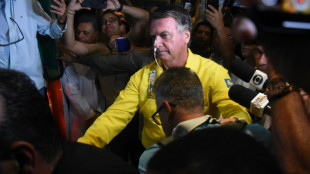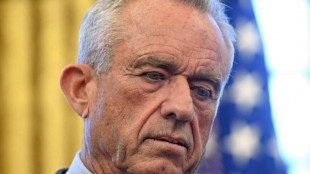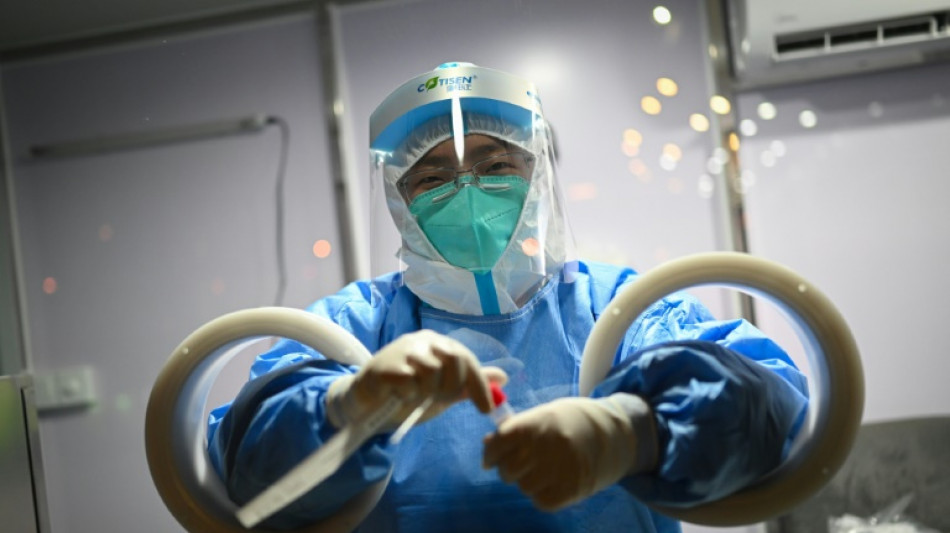
-
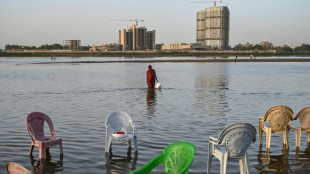 Sudan war drains life from once-thriving island in capital's heart
Sudan war drains life from once-thriving island in capital's heart
-
Trump trade war casts pall in China's southern export heartland

-
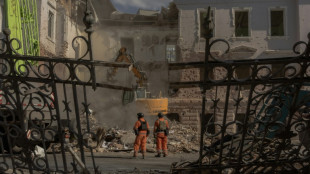 Ukraine's Sumy prepares to bury victims of 'bloody Sunday'
Ukraine's Sumy prepares to bury victims of 'bloody Sunday'
-
Iraq sandstorm closes airports, puts 3,700 people in hospital

-
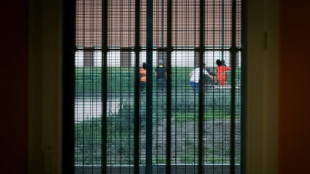 French prisons targeted with arson, gunfire: ministry
French prisons targeted with arson, gunfire: ministry
-
Pandemic treaty talks inch towards deal
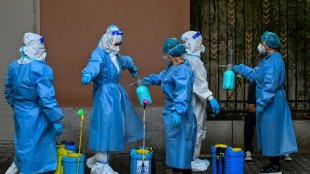
-
 Employee dead, client critical after Paris cryotherapy session goes wrong
Employee dead, client critical after Paris cryotherapy session goes wrong
-
Howe will only return to Newcastle dugout when '100 percent' ready

-
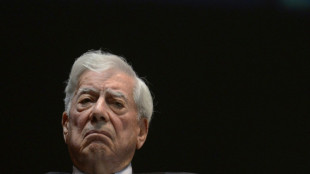 Journalist recalls night Mario Vargas Llosa punched Gabriel Garcia Marquez
Journalist recalls night Mario Vargas Llosa punched Gabriel Garcia Marquez
-
Sudan marks two years of war with no end in sight
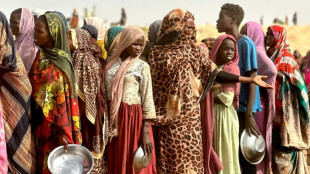
-
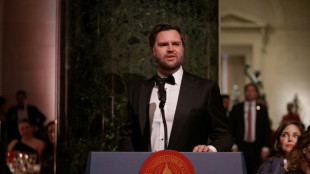 Vance urges Europe not to be US 'vassal'
Vance urges Europe not to be US 'vassal'
-
China tells airlines to suspend Boeing jet deliveries: report

-
 Stocks rise as stability returns, autos surge on exemption hope
Stocks rise as stability returns, autos surge on exemption hope
-
Harvard sees $2.2bn funding freeze after defying Trump
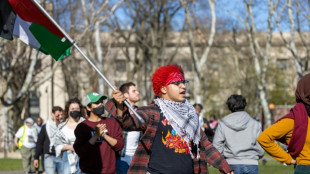
-
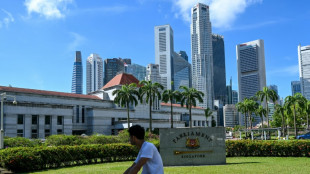 'Tough' Singapore election expected for non-Lee leader
'Tough' Singapore election expected for non-Lee leader
-
Japan orders Google to cease alleged antitrust violation

-
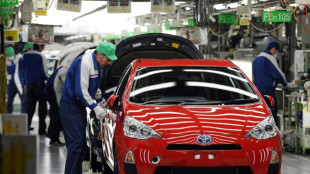 Stocks rise as stability returns, autos lifted by exemption hope
Stocks rise as stability returns, autos lifted by exemption hope
-
Malawi's debt crisis deepens as aid cuts hurt

-
 Danish brewer adds AI 'colleagues' to human team
Danish brewer adds AI 'colleagues' to human team
-
USAID cuts rip through African health care systems
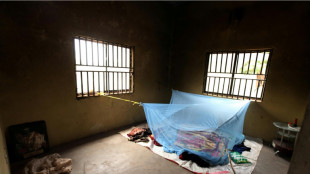
-
 Arsenal target Champions League glory to save season
Arsenal target Champions League glory to save season
-
Kane and Bayern need killer instinct with home final at stake

-
 Mbappe leading Real Madrid comeback charge against Arsenal
Mbappe leading Real Madrid comeback charge against Arsenal
-
S. Korea plans extra $4.9 bn help for chips amid US tariff anxiety
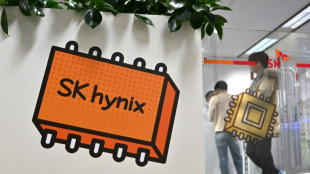
-
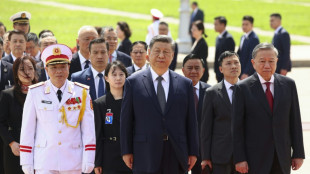 Xi's Vietnam trip aiming to 'screw' US, says Trump
Xi's Vietnam trip aiming to 'screw' US, says Trump
-
Iran's top diplomat to visit Russia after US nuclear talks
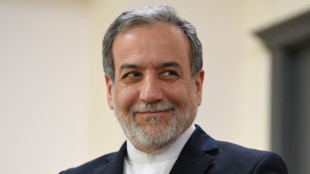
-
 China accuses US spies of Asian Winter Games cyberattacks
China accuses US spies of Asian Winter Games cyberattacks
-
Cambodia genocide denial law open to abuse, say critics
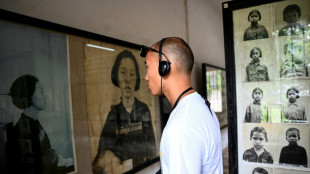
-
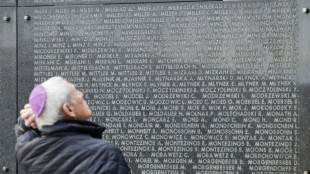 Holocaust remembrance and Gaza collide in Brussels schools
Holocaust remembrance and Gaza collide in Brussels schools
-
The miracle babies who survived Ravensbruck

-
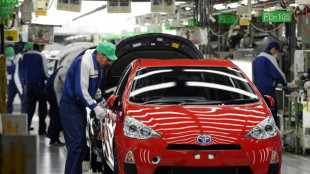 Asian stocks mixed as stability returns, autos lifted by exemption hope
Asian stocks mixed as stability returns, autos lifted by exemption hope
-
Disarming Lebanon's Hezbollah no longer inconceivable: analysts
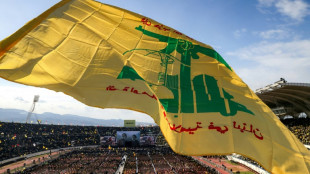
-
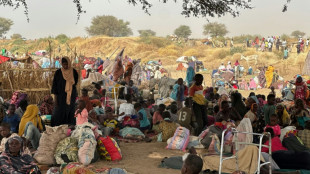 London hosts talks to find 'pathway' to end Sudan war
London hosts talks to find 'pathway' to end Sudan war
-
Harvey Weinstein New York retrial for sex crimes to begin
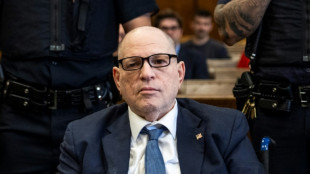
-
 Meta news ban intensifying Canadians' legacy media break
Meta news ban intensifying Canadians' legacy media break
-
All Black wing Tele'a announces Japan switch

-
 Chinese EV battery giant CATL posts 33% surge in Q1 profit
Chinese EV battery giant CATL posts 33% surge in Q1 profit
-
US grounds helicopter company behind fatal New York tour
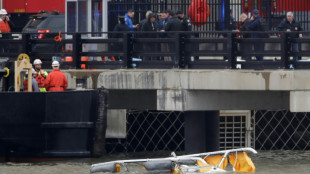
-
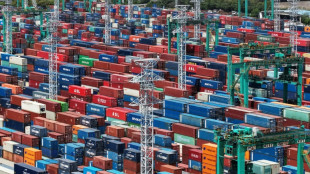 China's economy likely grew 5.1% in Q1 on export surge: AFP poll
China's economy likely grew 5.1% in Q1 on export surge: AFP poll
-
S. Korea govt plans $4.9 bn more help for semiconductors as US tariff risk bites
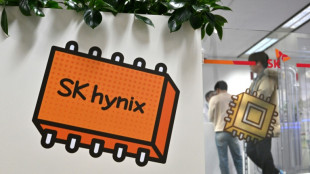
-
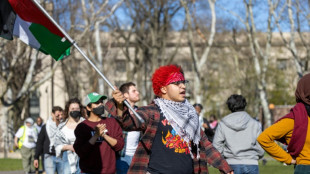 Harvard sees $2.2 billion in funding frozen after defying Trump
Harvard sees $2.2 billion in funding frozen after defying Trump
-
Israel demands hostage release for Gaza ceasefire: Hamas

-
 Guardian Metal Resources PLC - Significant Gallium Potential Identified
Guardian Metal Resources PLC - Significant Gallium Potential Identified
-
Birkenstock Announces Fiscal Second Quarter 2025 (Ended March 31, 2025) Results Date and Conference Call

-
 Meridian Drills Into Shallow High-Grade Cu-Au-Zn & Ag Massive to Semi-Massive Sulphides on the Open Western Limit of Santa Helena
Meridian Drills Into Shallow High-Grade Cu-Au-Zn & Ag Massive to Semi-Massive Sulphides on the Open Western Limit of Santa Helena
-
The DEA Is Defying Supreme Court Axon in MMJ's Cannabis Case - Is DEA a rogue agency?

-
 Formation Metals Deepak Varshney to Be Featured on Radius Research's Pitch, Deep Dive and Q&A Webinar on April 16th, 2025 to Discuss the N2 Gold Property with a Historical 877,000 oz Gold Resource
Formation Metals Deepak Varshney to Be Featured on Radius Research's Pitch, Deep Dive and Q&A Webinar on April 16th, 2025 to Discuss the N2 Gold Property with a Historical 877,000 oz Gold Resource
-
GECC Reports Fiscal 2025 Q2 Financial Results

-
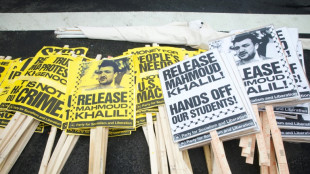 Palestinian student detained at US citizenship interview
Palestinian student detained at US citizenship interview
-
Argentina's peso sinks after currency controls eased
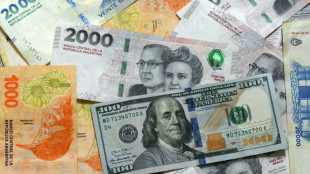

Pandemic accord talks at loggerheads as time ticks away
The final round of talks on a landmark pandemic accord faces a frantic last push this week, with countries still pulling in different directions on how to handle future global health crises.
The last week of negotiations runs until Thursday with nations trying to hammer out an agreement to make sure the world is better prepared to deal with the next pandemic -- or better still, stamp it out before it even happens.
Shaken by Covid-19, which shredded economies, overturned societies, crippled health systems and killed millions, countries decided in December 2021 to build a framework of binding commitments to stop such trauma from ever happening again.
But as two years of talks come to the crunch, major sticking points remain over how far countries are prepared to go.
The ninth and final negotiations round opened on March 18, with daily talks ploughing on late into the evening.
Sealing a deal will involve some serious horse-trading -- but the breakthrough moment remains elusive.
Diplomats insist they remain keen to conclude an agreement, but the various alliances still seem far apart.
World Health Organization chief Tedros Adhanom Ghebreyesus has repeatedly warned nations that "everyone will have to give something, or no one will get anything."
- 'Critical for humanity' -
European countries -- who led calls for a pandemic treaty -- want more money invested in pandemic prevention, while African nations want the knowledge and financing to make that work, plus proper access to pandemic "counter-measures" like vaccines and treatments.
The United States wants to ensure all countries share data and samples from emerging outbreaks quickly and transparently, while developing countries are holding out firm for guaranteed equity to stop them getting left behind.
According to the roadmap, a finalised accord on pandemic preparedness, prevention and response would be adopted at the May 27 to June 1 World Health Assembly of the WHO's 194 member states.
But there is a sense in diplomatic circles that developing nations are growing weary of Western obduracy and extra negotiations in April may be needed to cross the line.
"We all know there remain critical areas where you are yet to reach consensus," Tedros told the final negotiations round.
"You agree on what you are trying to achieve... now you need to agree on how to achieve these objectives.
"It’s mission-critical for humanity that you do," he warned.
"We cannot allow the cycle of panic and neglect to repeat."
- No time to 'chicken out' -
The main topics still in play include access to emerging pathogens, better prevention and monitoring of disease outbreaks, reliable financing and transferring technology to poorer countries.
The talks are being conducted by an Intergovernmental Negotiating Body co-chaired by Roland Driece of the Netherlands and South Africa's Precious Matsoso.
Opening the final talks round, Driece said many countries now thought reaching agreement would be "difficult", and the draft was "not really what we like".
"You all said it", but "that's how it works... It's time to find compromises," he explained.
Matsoso put it succinctly: "You can't chicken out now."
Success or failure in the next pandemic may heavily depend on the pharmaceutical industry coming up with the necessary vaccines, tests and treatments -- and crucially, how they are then distributed.
Thomas Cueni, director general of the International Federation of Pharmaceutical Manufacturers and Associations industry body, said any accord would be "meaningless" if companies were being strongarmed.
"It only works if it's voluntary and based on mutually-agreed terms," he told AFP.
The IFPMA chief said there had been unprecedented voluntary tech transfer during Covid, and "if this is created the wrong way, I'm afraid that this would put big barriers and disincentives next time round".
- 'Lowest common denominator' -
Non-governmental organisations have major concerns over the way the agreement text is heading.
K.M. Gopakumar, senior researcher with the Third World Network, surmised that in return for binding commitments on sharing pathogens, developing countries wanted equally-binding proposals "to share the benefits emerging out of these pathogens: vaccines, diagnostics".
He said there had been "systematic sidelining of equity-related provisions in the pandemic instrument".
He said phrases like "parties shall promote" mean that "nothing is concrete".
Rachael Crockett from the Drugs for Neglected Diseases initiative said there was a risk of a rushed deal that "could leave us with the lowest common denominator".
Ultimately, senior WHO figures have been trying to remind countries why nations wanted a treaty in the first place.
WHO emergencies director Michael Ryan said the accord would be a promise to future generations.
"The outcome really matters," he said Thursday.
"This isn't some dusty old document that will sit on a shelf somewhere. This treaty will save lives."
O.M.Souza--AMWN
